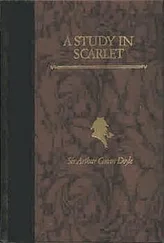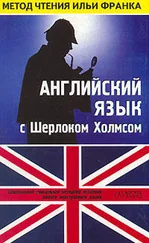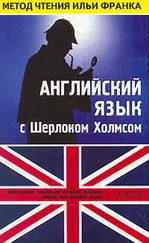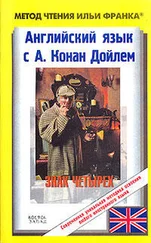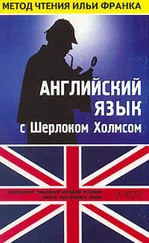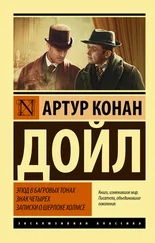"That is true (это верно) ," said I.
consequence ['kOnsIkw@ns], instructive [In'strVktIv], intrinsic [In'trInsIk]
"What you do in this world is a matter of no consequence," returned my companion, bitterly. "The question is, what can you make people believe that you have done. Never mind," he continued, more brightly, after a pause. "I would not have missed the investigation for anything. There has been no better case within my recollection. Simple as it was, there were several most instructive points about it."
"Simple!" I ejaculated.
"Well, really, it can hardly be described as otherwise," said Sherlock Holmes, smiling at my surprise. "The proof of its intrinsic simplicity is, that without any help save a few very ordinary deductions I was able to lay my hand upon the criminal within three days."
"That is true," said I.
"I have already explained to you (я уже объяснял вам) that what is out of the common is usually a guide rather than a hindrance (что то, что выходит за рамки обыденного, обычно является скорее подсказкой, чем помехой; guide — путеводитель; ориентир) . In solving a problem of this sort (решая подобную задачу) , the grand thing is to be able to reason backwards (важно суметь построить умозаключения от следствия к причине; backwards — в обратном направлении; grand — большой, величественный, грандиозный; главный, принципиальный, основной, очень важный) . That is a very useful accomplishment (это очень полезная способность; accomplishment — талант, достоинство; to accomplish — совершать, выполнять; достигать; доводить до конца; достигать совершенства) , and a very easy one (и очень легко приобретаемая: «и очень легкая») , but people do not practise it much (но ее не очень-то практикуют) . In the every-day affairs of life it is more useful to reason forwards (в повседневной жизни: «в повседневных делах жизни» более полезно рассуждать от причины к следствию; forwards — вперед) , and so the other comes to be neglected (так что обратным процессом обычно пренебрегают: «другой становится заброшенным») . There are fifty who can reason synthetically (на пятьдесят человек, которые могут рассуждать синтетически) for one who can reason analytically (приходится один, который может рассуждать аналитически) ."
"I confess," said I, "that I do not quite follow you (признаюсь, — сказал я, — что не вполне вас понимаю) ."
"I hardly expected that you would (едва ли я ожидал, что вы поймете) . Let me see if I can make it clearer (давайте посмотрим, смогу ли я объяснить доступнее: «смогу ли я сделать это яснее») . Most people, if you describe a train of events to them (большинство людей, если вы опишите им последовательность событий) , will tell you what the result would be (скажут вам, каков будет результат) . They can put those events together in their minds (они могут умственно сопоставить эти события) , and argue from them that something will come to pass (и на основании этого сделать вывод, что что-то произойдет; to come to pass — случаться, происходить) . There are few people, however (однако мало найдется таких) , who, if you told them a result (которые, если вы скажете им результат) , would be able to evolve from their own inner consciousness (смогут воссоздать внутри себя: «по их внутреннему осознанию»; to evolve — развертывать; развивать, выводить; consciousness — понимание, осознание) what the steps were which led up to that result (каковы были те шаги, которые привели к такому результату) . This power is what I mean when I talk of reasoning backwards, or analytically (эту способность я и имею в виду, когда я говорю о ретроспективном, или аналитическом мышлении; reasoning — рассуждение, умозаключение) ."
neglect [nIg'lekt], synthetically [sIn'TetIk(@)lI], consciousness ['kOnS@sn@s]
"I have already explained to you that what is out of the common is usually a guide rather than a hindrance. In solving a problem of this sort, the grand thing is to be able to reason backwards. That is a very useful accomplishment, and a very easy one, but people do not practise it much. In the every-day affairs of life it is more useful to reason forwards, and so the other comes to be neglected. There are fifty who can reason synthetically for one who can reason analytically."
"I confess," said I, "that I do not quite follow you."
"I hardly expected that you would. Let me see if I can make it clearer. Most people, if you describe a train of events to them, will tell you what the result would be. They can put those events together in their minds, and argue from them that something will come to pass. There are few people, however, who, if you told them a result, would be able to evolve from their own inner consciousness what the steps were which led up to that result. This power is what I mean when I talk of reasoning backwards, or analytically."
"I understand (понимаю) ," said I.
"Now this was a case in which you were given the result (а это был такой случай, в котором вам был дан результат) and had to find everything else for yourself (а все остальное вам пришлось находить самому) . Now let me endeavour to show you the different steps in my reasoning (теперь позвольте мне попробовать показать вам отдельные этапы: «шаги» моих рассуждений; different — другой, отличный; разный) . To begin at the beginning (начнем с начала) . I approached the house, as you know, on foot (я подошел к дому, как вы знаете, пешком) , and with my mind entirely free from all impressions (с умом, абсолютно свободным от всех предвзятых идей; impression — впечатление; представление, понятие) . I naturally began by examining the roadway (естественно, я начал осмотр с дороги) , and there, as I have already explained to you (и там, как я уже вам объяснил) , I saw clearly the marks of a cab (я явственно увидел следы кеба) , which, I ascertained by inquiry, must have been there during the night (который, как я, расспрашивая, уточнил, должен был проехать там ночью; to ascertain —выяснять, устанавливать) . I satisfied myself that it was a cab and not a private carriage by the narrow gauge of the wheels (я удостоверился в том, что это кеб, а не частный экипаж, из-за его узкой колеи; to satisfy — убеждать; доказывать; gauge — ширина колеи; колесная база; wheel — колесо) . The ordinary London growler is considerably less wide than a gentleman's brougham (обычный лондонский кеб заметно уже: «менее широк», чем экипаж джентльмена; growler — четырехколесный экипаж, тарантас; brougham — одноконный двух- или четырехколесный экипаж для двух или четырех человек) .
Читать дальше


